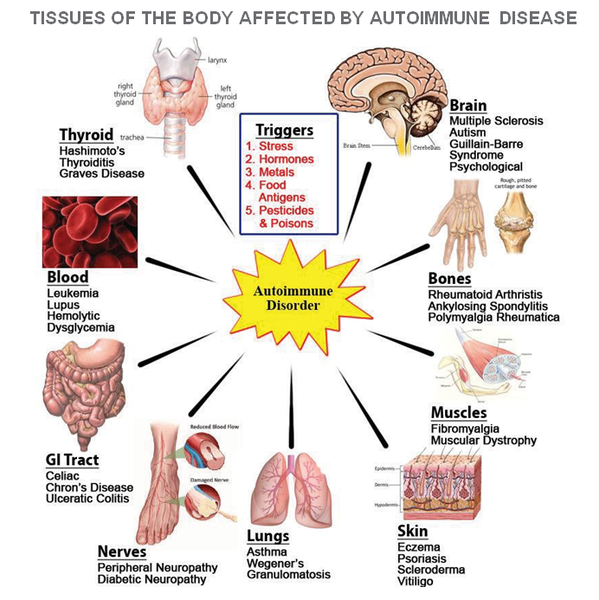In an autoimmune disease, the body produces antibodies that attack its own tissues. Autoimmune diseases are one of the top 10 leading causes of death in girls and women of all ages up to 64 years of age. The National Institutes of Health (NIH) estimates that more than 53 million people can be suffering from an autoimmune disorder. These patients can be passed from one doctor to another as communications from one specialist to another can be less than perfect. There is emerging research that genetics, diet, and environmental toxins may play a role in the increase of autoimmune disease.
The majority of autoimmune diseases start with increased intestinal permeability or “leaky gut”. Some stressor (food allergy, gut bacteria imbalance, medications, stress, environmental toxins, infection, poor diet, etc) causes inflammation in the gut lining. Inflammation creates openings in the cell linings to allow for the immune cells to get to the area of infection or irritant. In the gut, when this happens, undigested food particles cross the gut lining where 70% of our immune system lies.
Antibodies are created towards these food particles, which then cross react to attack certain tissues, shown below. So, instead of giving a steroid or injection, finding the direct cause of the autoimmune disease does best. There are many components to an autoimmune disease, but if a food allergy or gut imbalance is playing a large role, fixing that and avoiding the allergen can be a much better and natural solution.

